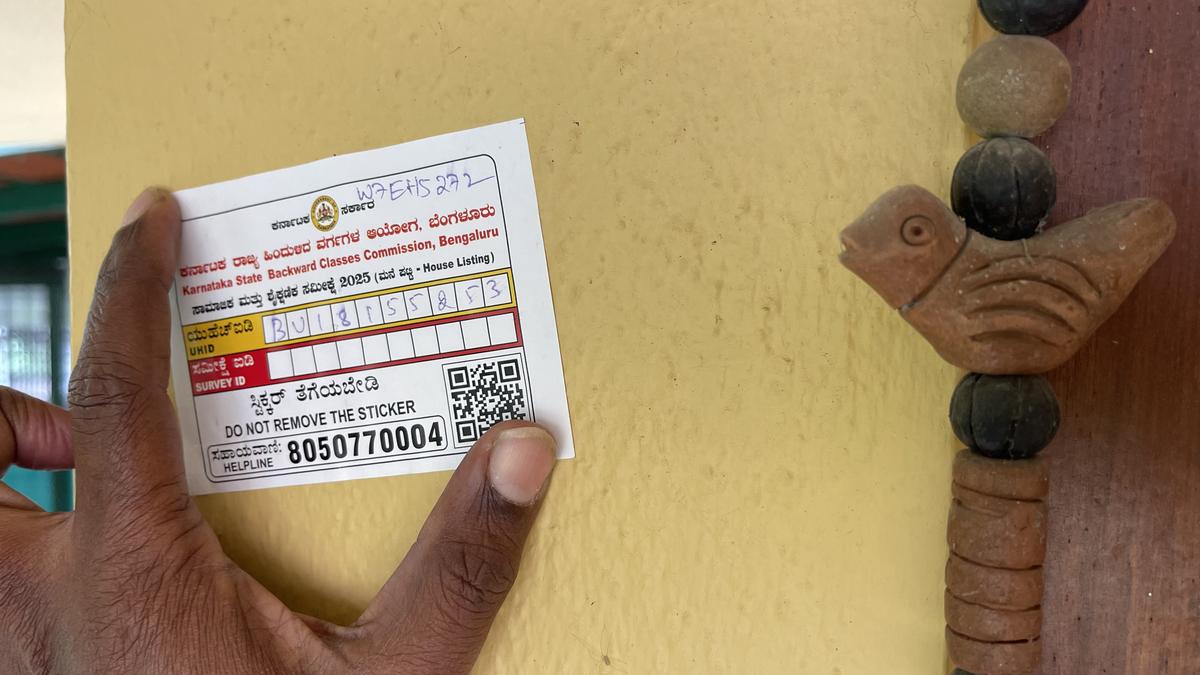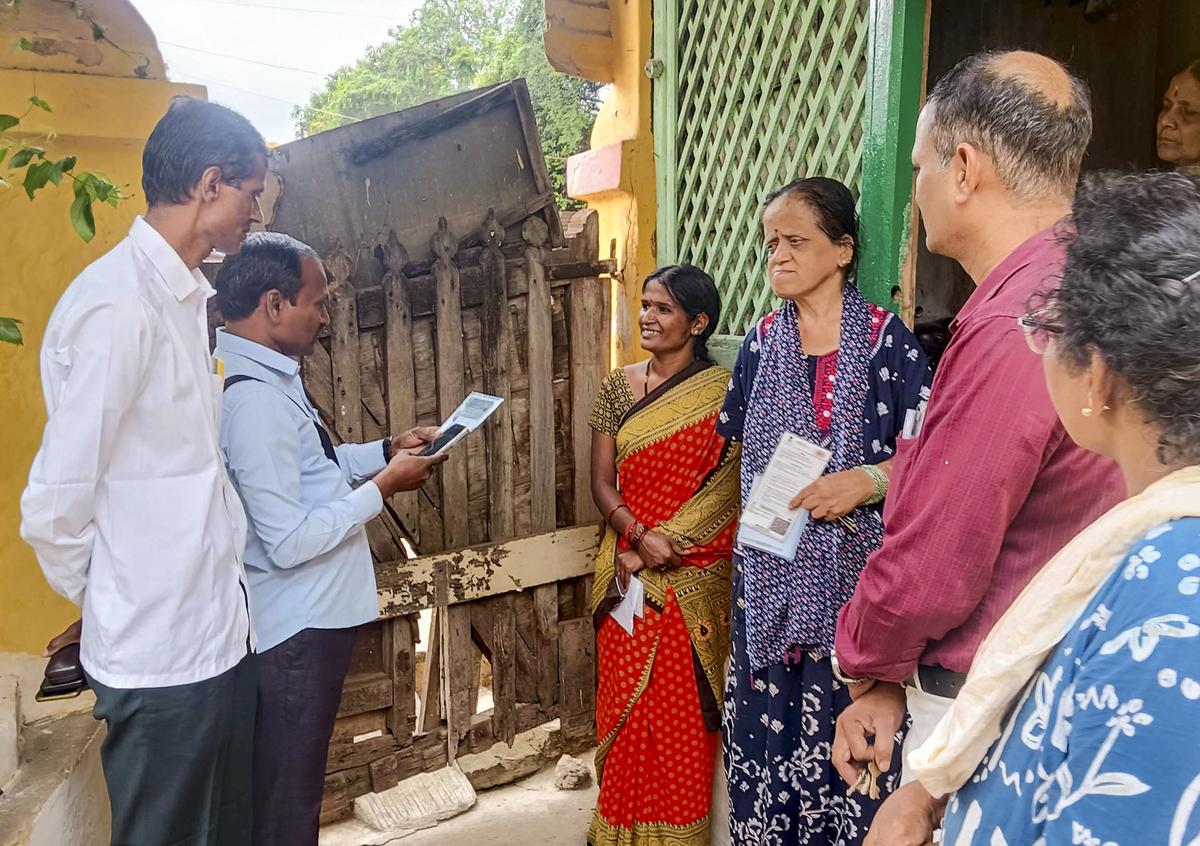The Karnataka government’s ongoing socio-educational survey has brought forward an unexpected challenge, leaving members of the Kodava community perplexed over how to register their religious identity. Kodavas, a distinct ethnolinguistic group native to the hilly district of Kodagu, have long been proud of their cultural uniqueness, traditions, and warrior lineage. However, in the state-wide enumeration exercise, many are struggling with categorisation, as their faith and practices do not neatly align with existing religious options such as Hinduism, Christianity, or Islam. The confusion has triggered a larger debate on recognition, identity, and cultural preservation.
Historically, the Kodavas have followed a system of worship that blends ancestor reverence, nature rituals, and unique social customs. Unlike mainstream Hindu practices, Kodavas do not have caste divisions or temple-based religious structures at the heart of their traditions. This makes ticking the “Hindu” option in the survey a dilemma for many families, who feel that doing so could dilute their distinct heritage. At the same time, the lack of a dedicated option for “Kodava religion” forces them into classifications that don’t represent their identity. As word spreads across Kodagu, local leaders, cultural associations, and households have begun discussing the issue in community gatherings, hoping for clarity from the government.
The situation is not just administrative but deeply emotional, as many Kodavas fear that improper recording of their identity could have long-term impacts on representation, benefits, and cultural continuity. A socio-educational survey meant to map inequalities is now inadvertently opening a Pandora’s box of historical and cultural sensitivities. For a community that has fought to preserve its land and traditions through centuries of political changes, the question of “where do we belong” is stirring anxieties. Calls are growing for officials to either provide a clear separate identity column or ensure guidelines that respect the community’s unique heritage, before the survey results create confusion.

Community Voices Demand Recognition
Kodava leaders have urged the Karnataka government to acknowledge their cultural and religious distinctiveness in the survey. They believe misclassification could lead to misrepresentation in future policy-making.
Many ordinary families are torn between practicality and pride. While some choose the Hindu option to avoid complications, others insist their culture deserves independent recognition.
The confusion over the Kodavas’ religious identity in the socio-educational survey has also reignited debates within the community itself. Some members argue that the Kodavas have always been identified as Hindus in census records, and continuing with the same label will prevent unnecessary disputes. Others, however, insist that this practice has long undermined their unique identity, making it difficult for future generations to claim recognition of their distinct cultural and religious heritage. This internal divide is further complicating the situation as the survey deadline approaches.
Another dimension of the debate lies in the role of cultural organisations. Groups like the Codava National Council and Kodava Samaja have been vocal about the need for recognition of the Kodava religion. They argue that official acknowledgment would not only preserve cultural practices but also protect the community from being overshadowed by larger religious groups. These organisations have started mobilising meetings, discussions, and petitions to urge the government to take corrective steps before the enumeration process ends.
The government’s position so far has been one of silence. Officials conducting the survey have reportedly instructed enumerators to guide respondents towards selecting one of the available mainstream categories, such as Hinduism. However, this guidance has not satisfied the Kodava community. Many families have openly expressed frustration, noting that being forced into pre-existing boxes strips them of their agency and disregards their identity. The lack of transparency in the survey instructions has only heightened the tensions on the ground.
For younger Kodavas, the issue carries added emotional weight. Many in the younger generation, who are exposed to ideas of cultural diversity and global identity politics, view this moment as critical for ensuring that their heritage is not erased. They have taken to social media to share their concerns, sparking online campaigns demanding recognition. This digital activism has not only reached local authorities but has also caught the attention of diaspora Kodavas, who echo similar concerns from abroad.
The survey’s ambiguity has also placed enumerators in a difficult position. Several field staff members have admitted privately that they are unsure of how to handle Kodava households when asked about religion. The lack of formal training or clear instructions has led to inconsistencies in data collection, with some families being recorded under Hinduism, while others have left the section blank. This inconsistency risks producing unreliable statistics, undermining the survey’s original purpose of accuracy and inclusivity.
Legal experts warn that the absence of recognition for Kodavas as a separate religious identity could lead to long-term challenges. If government records consistently list them under Hinduism, it could become difficult for future generations to argue for separate classification in official policies, benefits, or protections. Such an outcome may also limit the scope of cultural preservation measures, reducing the visibility of their unique traditions within the wider state and national framework.

At the grassroots level, the uncertainty has sparked emotional debates in households. Elderly members worry that by marking Hinduism, their grandchildren may lose the sense of being distinctly Kodava. Some families feel pressure to conform to avoid complications, while others are determined to mark their difference even if it means leaving the religious identity column unanswered. These kitchen-table discussions reflect the larger identity struggle at play, making the issue deeply personal for every Kodava family.
The outcome of this survey could also influence the way other minority groups in Karnataka approach their identity in official records. Communities such as the Tuluvas and other indigenous groups may draw inspiration from the Kodavas’ stand, demanding more tailored recognition. In this sense, the current debate is not only about one community but about the inclusivity of state-led enumeration as a whole. How the government handles this situation will set a precedent for the way diversity is represented in future surveys and censuses.
Meanwhile, political leaders have begun weighing in on the matter. Some local representatives have called for immediate intervention by the state to introduce a separate identity option for Kodavas in the survey. Others, however, remain cautious, suggesting that such a move could open demands from other smaller communities across Karnataka, creating a ripple effect of claims for separate recognition. This balancing act has put the state government in a politically sensitive position.
Cultural historians argue that the Kodava dilemma reflects a broader issue in India’s approach to identity and enumeration. The country’s surveys and censuses have often reduced complex cultural and religious identities into broad categories, failing to capture the diversity of practices that exist. The Kodava case is being seen as an example of how standardised classifications may unintentionally marginalise communities with unique traditions. This perspective has added weight to the demand for rethinking the design of such surveys altogether.
The Road Ahead for Kodava Identity
As the survey continues, the Kodava confusion has turned into a test case for the inclusivity of state enumeration practices. A sensitive response from officials could preserve a community’s pride, while negligence risks alienating them. The government’s final call on how to document Kodavas’ identity will shape not just statistics, but the future of cultural diversity in Karnataka. For the Kodava community, this is less about a bureaucratic form and more about safeguarding centuries of tradition. Whether they are officially recognised as a separate faith or subsumed under Hinduism, the decision will remain a defining moment in the identity struggle of one of Karnataka’s most unique communities.
The ongoing Karnataka socio-educational survey, popularly known as the caste census, has triggered confusion among the Kodava community over how to record their religious identity. Kodavas, a distinct ethnolinguistic group native to Kodagu district, are grappling with forms that require a definitive choice under religion categories, where no specific option exists for their traditional belief systems. This ambiguity has left many community members unsure whether to register as Hindus, under “others,” or push for recognition of a separate Kodava identity, fueling debates within families and community organizations alike.
For generations, the Kodavas have practiced a unique blend of ancestor worship, nature reverence, and martial traditions, which set them apart from mainstream religious practices. While many are officially recorded as Hindus, community leaders argue that Kodava religious practices cannot be fully captured under the Hindu umbrella. Rituals centered on ancestral homes (Ainmanes), the festival of Puthari (harvest), and the veneration of weapons reflect their distinct culture. The socio-educational survey, by demanding standard categorization, has reignited discussions on whether Kodavas need recognition of their unique religious and cultural practices in official records.

The issue has taken on a larger dimension as the outcome of the caste census is expected to influence future policy decisions, including reservations, representation, and welfare schemes. Many Kodavas fear that a lack of proper recognition of their identity could dilute their distinct heritage and weaken their position in socio-political negotiations. Several Kodava organizations have urged the Karnataka government to create a clear option for Kodavas under the religious identity column. Others, however, prefer continuing under Hinduism to avoid administrative complications, highlighting the internal divide on this sensitive issue.
Follow: Karnataka Government
Also read: Home | Channel 6 Network – Latest News, Breaking Updates: Politics, Business, Tech & More

